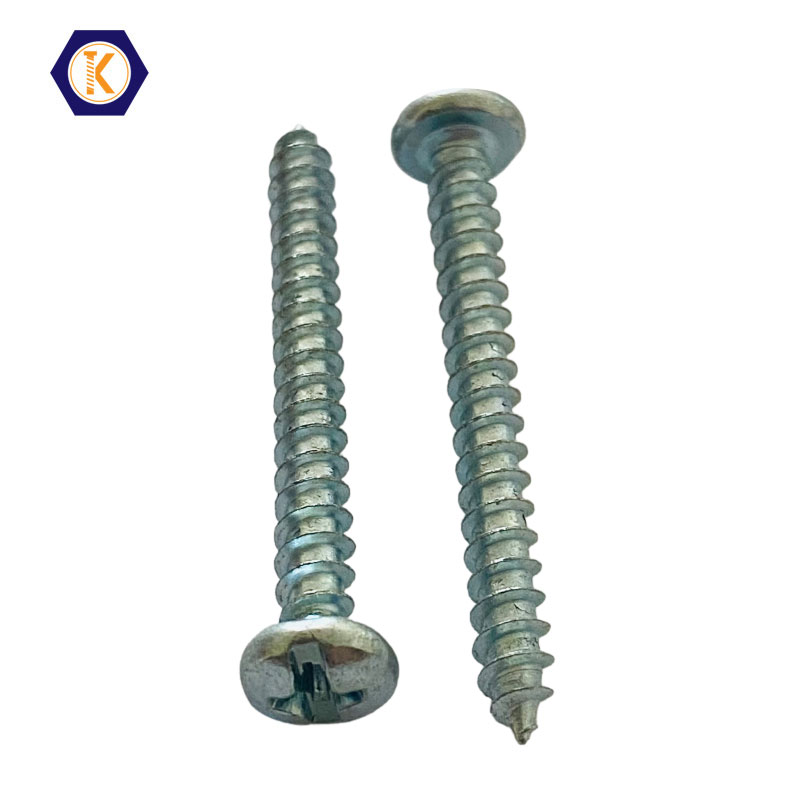What materials are Compound Groove Self-Tapping Screws typically made from?
2023-10-17
Compound Groove Self-Tapping Screws can be manufactured from various materials, each of which offers specific characteristics and benefits. The choice of material for these screws can significantly impact their performance in different applications. Here are some common materials used for Compound Groove Self-Tapping Screws and how their selection can affect performance:
1. Carbon Steel:
- Performance Impact: Carbon steel is a widely used material for self-tapping screws due to its strength and affordability. It offers good performance in many applications but may be susceptible to corrosion over time. Coatings or plating can be applied to enhance corrosion resistance.
2. Stainless Steel:
- Performance Impact: Stainless steel is highly corrosion-resistant and is an excellent choice for outdoor or corrosive environments. It provides long-lasting performance and is often used in marine, construction, and automotive applications.
3. Alloy Steel:
- Performance Impact: Alloy steel self-tapping screws offer enhanced strength and durability. They are suitable for applications that require high load-bearing capacity and resistance to wear and tear.
4. Brass:
- Performance Impact: Brass screws are known for their corrosion resistance, making them suitable for decorative or marine applications where aesthetics and protection against corrosion are important.
5. Aluminum:
- Performance Impact: Aluminum self-tapping screws are lightweight and corrosion-resistant. They are commonly used in applications where weight reduction is a priority, such as in the aerospace industry.
6. Zinc:
- Performance Impact: Zinc-coated or zinc-plated self-tapping screws provide good corrosion resistance and are often used in indoor applications where moderate corrosion protection is needed.
7. Plastic:
- Performance Impact: Some self-tapping screws are made from plastic materials, typically reinforced with fiberglass or other additives. They are non-corrosive and are used in applications where electrical insulation or non-metallic fastening is required.
Material selection should be based on the specific requirements of the application. Here's how material selection impacts performance:
- Corrosion Resistance: For outdoor or humid environments, materials like stainless steel or brass are preferred to prevent rust and corrosion, which can weaken the screw's integrity.
- Strength: Applications that require high load-bearing capacity or resistance to extreme forces may benefit from screws made of alloy steel or carbon steel with high tensile strength.
- Weight Considerations: In applications where weight reduction is crucial, lightweight materials like aluminum may be preferred to reduce the overall weight of the assembled structure or product.
- Electrical Insulation: Plastic self-tapping screws are non-conductive and are used in applications where electrical insulation is necessary to prevent electrical conductivity or interference.
- Aesthetics: Brass self-tapping screws are often chosen for their decorative appearance and corrosion resistance in applications where aesthetics are important.
- Cost: Material costs can vary significantly, so budget considerations may influence material selection, especially in high-volume manufacturing.
It's important to carefully evaluate the specific requirements of your application, including factors like environmental conditions, load-bearing capacity, and aesthetics, when selecting the material for Compound Groove Self-Tapping Screws to ensure they perform effectively and maintain their integrity over time.



